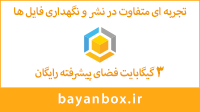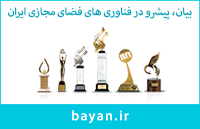نقشه راه ثبات اقتصادی (فرضیه ها ، اصول و مبانی)
فرضیه اصلی در نقشه راه این است که: مردم و دولت با کمک یکدیگر، بتوانند قیمت کالا و خدمات را ثابت نگهداشته، یا روند آن را قابل پیش بینی سازند. لذا لازم است عناصر تولید و توزیع ومصرف: کالا و خدمات مورد بازنگر قرار گیرند. تا اهداف فوق قابل بررسی باشد. اصولی که باید در این بررسی، مورد توجه قرار گیرد: جدایی تئوری اقتصاد ایران، از همه تئوری های اقتصادی جهان است. (بومی باوری). مردم ایران هزاران سال است که: اقتصاد های بزرگ و وسیعی داشته اند، و هیچگاه با بحران مواجه نشدند. از کورش بزرگ نقل شده: که خدایا ایران را از خشکسالی، دشمن و دروغ محفوظ بدار. زیرا اساس بحران های اجتماعی، یا از درون است مانند دروغ گفتن. یا از بیرون است مانند دشمن، یا از طبیعت است مانند خشکسالی. مبانی نظری این اقتصاد قوی 7یا 15هزار ساله، عبارت از این است که: دولت ها کاری به مردم نداشته باشند. علت اصلی همه بحران ها در ایران معاصر، نادیده گرفتن این مبانی است. تولید در ایران از زمان باستان تا کنون، خانگی( زیر زمینی و بدون پروانه) بوده است. دولت سعی دارد: اینها را شناسایی کند تا از انها مالیات بگیرد. ترس از مالیات و بیمه و هزاران بدهی دیگر، تولیدی ها را تهدید به نابودی می کند. لذا دولت بجای شناسایی آنها برای مالیات، اگر به انها کمک بیمه ای: سوبسید دار و مانند آن داشته باشد، آنها خودشان را نشان خواهند داد. یا حداقل (وسط را بگیرد یعنی) نه کمک کند و نه، کاری به آنها داشته باشد. در اینصورت کل تولیدات کشاورزی و: صنعتی و خدماتی تضمین است. توزیع هم در ایران به همین شکل بوده! یعنی تولیدات زیر زمینی و خانگی، بوسیله دستفروشان و دوره گردان بی شناسنامه! فروخته می شده، چون هزینه اجاره و مالیات و بیمه و امثال آن نداشتند، قیمت ها هم منصفانه بود، و تورم زا نمی شده است. دولت با وضع مالیات بر فروش، آنها را بسوی نابودی می کشاند. خدمات نیز به همین شکل بوده، یعنی طبیب یاآرایشگر، بجای نشستن در یک مکان و: خلق هزینه های ثابت، دوره گردی می کردند: و بر بالین بیمار یا درخواست کننده، خدمات حاضر می شدند. سرمایه گذاری در این روند تاریخی هم، دستمایه نام داشت و: معمولا از ارث پدری، کمک افراد خانواده و یا خیرین، تامین می شده و اکنون صندوق اعتباری: محلی یا خانوادگی هم به آن اضافه شده. لذا هیچ نیازی به بانکها نبوده. صراحتا، ورود بانکها به عرصه تولید و خدمات، فقط به قصد ضربه زدن بوده است. زیرا کسی که وام می گیرد، طبیعتا قدرت بازپرداخت ندارد: فقط طرح هایی در ذهن دارد که: هزینه های آن واقعی ولی درآمد های آن تخیلی است. لذا بانکها با تعیین جریمه و بهره، گرفتن سفته و ضمانت، قصد زندانی کردن کارگزار و: مصادره اموال او را دارند. در بخش صادرات و واردات هم، مردم تجربه حمل بار مسافری، یا صادرات چمدانی، کولباری و پیله وری دارند. هرگز این امر تلاطم پیدا نمی کند. مگر اینکه دولت ورود پیدا کند! مثلا بخواهد آنها را ساماندهی نماید. بنابر این در همه ابعاد اقتصادی ایران، ورود دولت به منزله بی ثبات کردن آن است. بهتر است اصلا به فکر ساماندهی، یا ورود به بخش ها نباشد. مثلا در تربیت نیروی انسانی مورد نیاز صنعت، دولت ورود کرده و: دانشگاهها را درست می کند، ولی می بینیم همه محصول آن بیکار می مانند! زیرا در دانشگاه تئوری های: تازه به دوران رسیده ها را می خوانند! در اسلام هم خمس و زکات، با همین هدف است. یعنی اسلام دخالتی در تولید گندم نمی کند، ولی اگر تولید گندم زیاد شد، بخشی از آن را با نظر تولید کننده(خوداظهاری)، به عنوان زکات مطالبه می کند.
Economic Sustainability Roadmap (Hypotheses, Principles and Basics)
The main hypothesis in the roadmap is that: people and the government, with the help of each other, can keep the prices of goods and services constant, or predict their trend. Therefore, the elements of production and distribution and consumption must be revised: goods and services are subject to review. Until: the above objectives are verifiable. The principles that should be taken into account in this study are the separation of the theory of Iranian economy from all the economic theories of the world. (Native Belief). The people of Iran have for thousands of years been: large and large economies, and never encountered a crisis. From Cyrus the Great quoted: God save Iran from drought, enemy and lies. Because: the basis of social crises, or from within, is like lying. Or from the outside is like an enemy, or from nature, like drought. The theoretical foundations of this strong economy of 7 or 15 thousand years are that: Governments do not have a job for the people. The root cause of all the crises in contemporary Iran is to ignore these bases. Production in Iran since ancient times has been domestic (underground and without license). The government is trying to: Identify these to tax them. Fear of taxes and insurance and thousands of other debts threatens to destroy production. Therefore, instead of identifying them for tax, the government will show themselves if they have an insurance subsidy: subsidized and the like. Or at least (mean) not to help, and no, to have something to do with them. In this case, the total agricultural and industrial production and services are guaranteed. The distribution in Iran was the same! Namely underground and home products, by handlers and anonymous banners! They were sold because of the cost of rent, taxes, insurance, and so on, prices were also fair and not inflationary. The government, by imposing a tax on sales, brings them to destruction. The services were the same, that is, the physician or the caretaker, instead of sitting in one place, and: standing up for a fixed cost: they would be attending the patient's or patient's bedside. Investing in this historical process was also called a resource: usually it was funded by a father's inheritance, the help of family or charity, and now added a cash deposit: local or family. So there was no need for banks. Clearly, the entry of banks into production and services has been aimed only at knocking out. Because someone who takes a loan naturally does not have the power to repay: there are only plans in mind that: its costs are real, but its revenues are imaginative. Therefore, banks are planning to imprison brokers by confiscating their property by imposing fines and interest, taking notes and warranties. In the export and import sector, people also experience passenger transport, or export luggage, kolbari and coca. It will never be turbulent. Unless the government arrives! For example, he wants to organize them. Therefore, in all aspects of Iran's economy, the arrival of the government is destabilizing it. It's better not to think about organizing or entering sections. For example, in the training of the human resources required by the industry, the government enters and: makes universities, but we see that all its products are unemployed! Because at the University theories are: Newly Read! In Islam, Khums and Zakat are for the same purpose. Namely, Islam does not interfere with the production of wheat, but wheat production is increasing, as part of the demand for a producer (self-declaration) as a zakat.
- ۰ نظر
- ۳۰ تیر ۹۷ ، ۲۳:۰۸





